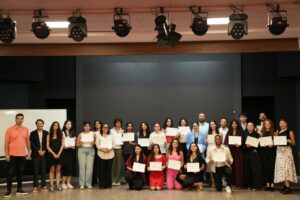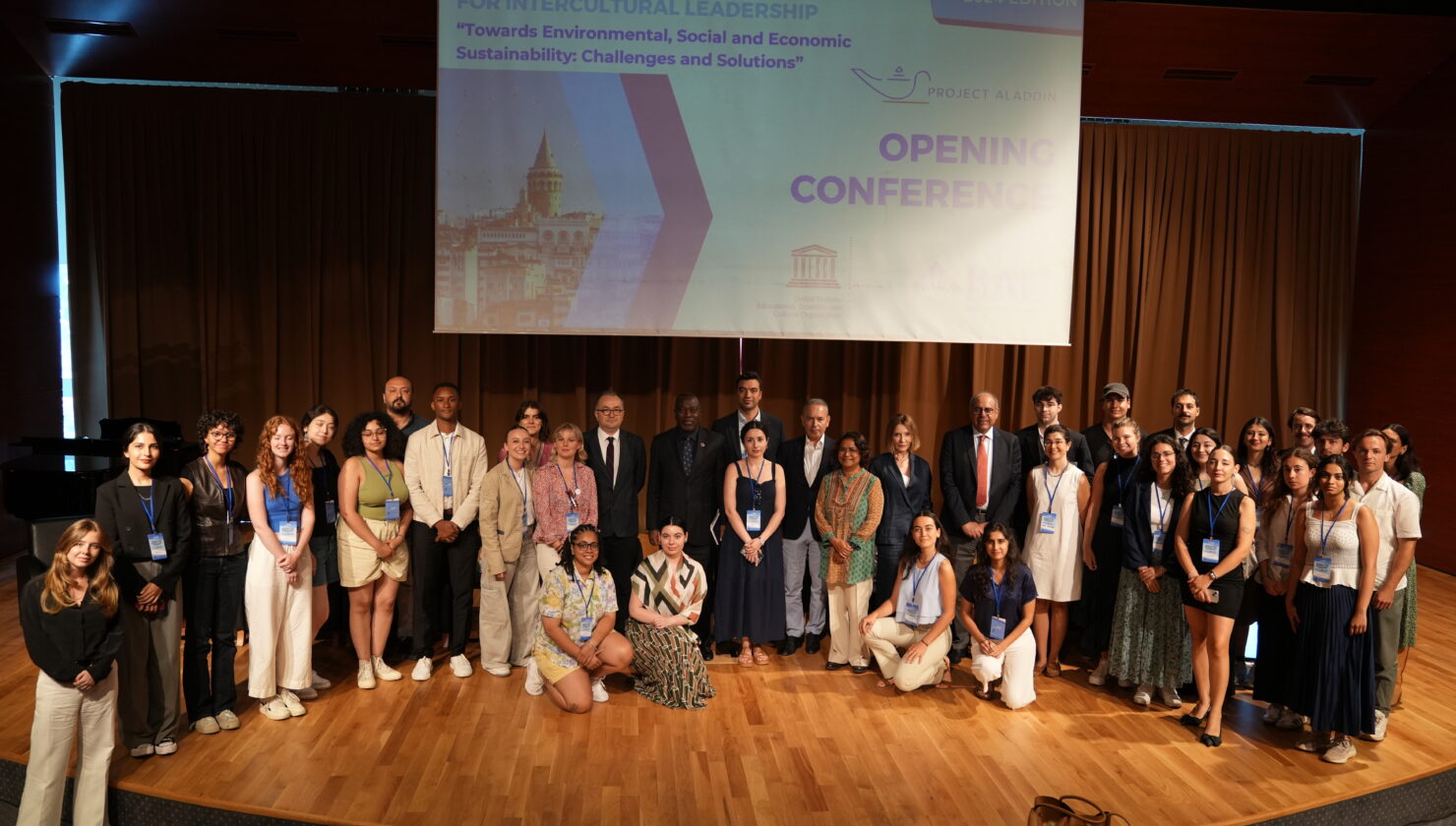The 11th International University for Intercultural Leadership, an annual two-week young leaders’ program organized by Project Aladdin in partnership with UNESCO and Bahçeşehir University, was held at the Future Campus of the University of Bahçeşehir in Kemerburgaz, northof Istanbul in the second half of July 2024.
This year’s program was different from previous years, mainly as a result of the impact of the terrorist attacks of October 7, 2023, in Israel and the ensuing conflicts in Gaza and Lebanon. Five Israeli universities that are partners of the program could not send any students because of the ongoing conflict and security concerns. The program was exceptionally scaled down from 70 participants to some thirty students from 18 partner universities in Europe, the Middle East, Africa and North America. This year’s principal theme was focused on inclusive sustainable development, women’s empowerment and social justice.
The students had the opportunity to attend lectures by recognized scholars, including François Gemenne, professor of environmental studies at Sciences Po Paris and a global authority on environmental geopolitics; Nilüfer Narli, dean of the Faculty of Sociology at Bahçeşehir University; Babatunde Ahonsi, United Nations Resident Coordinator in Turkey; Ayse Uyduranoglu, senior lecturer at Bilgi University; Nidhi Nagabhatla, a globally known specialist in natural resource management and a senior lecturer at the United Nations
University; Armando Rocha, professor of International Law and Climate Law at the Catholic University of Lisbon; Bahadır Kaleağası, President of Institut du Bosphore and senior lecturer at Galatasaray University; Emma Letellier, senior lecturer at Sciences Po Paris; and Tanguy Denieul, country director for Turkey at the Agence Française de Développement.
The program being in partnership with UNESCO, Professor Serhan Ada of Bilgi University, UNESCO Chair in Cultural Policy and Diplomacy, led two workshops on intercultural skills to enable the students to develop a “toolbox for intercultural dialogue.” This toolbox, one of UNESCO’s important innovations in recent years, was first introduced as a pilot at the International University for Intercultural Leadership in 2019.
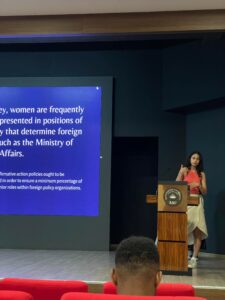
The students were divided into groups to work together on research projects. Coming from a variety of countries, cultures and disciplines, they developed a research proposal related to this year’stheme, drawing on their personal knowledge, interests and ambitions. At the end of the course, each group presented an outline of its project, detailing the main research question, the methodology and a timetable for finalizing and submitting the papers. Over the coming months, the students will continue to work on these projects, reinforcing the intellectual cooperation and personal connections initiated during the summer program. An international jury will review all the papers submitted, and the authors of the best projects will receive the Project Aladdin Youth awards.
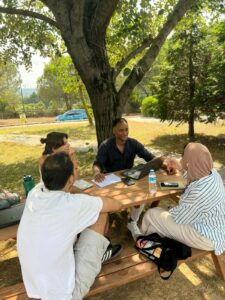
In addition to the academic program, the International University for Intercultural Leadership providesa unique culturalexperience, allowing the participating students to discover Istanbul, a city at the crossroads of continents, cultures, traditions, and civilizations. As part of a guided tour organized by Bahçeşehir University, the students visited such historic landmarks as the Topkapi Palace, Galata Tower and Sultan Ahmet Square, among other sites.
This year, several intercultural workshops on orientalism and representations of oriental women by European artists were organized for the students. This introduction to orientalism included an exclusive guided tour of the Pera Museum,which presented an exhibition on cultural exchanges between Ottoman and European ambassadors and emissaries. The cultural workshops curated by Yasemine Aykan allowed the students to discover how two different cultural spheres exchanged ideas and interacted over the course of centuries, in times of peace and conflict alike.
“Welcome to My Culture” evening has now become a ritual of the annual program, giving students an opportunity to share and celebrate their homeland’s traditions and folklore. During this memorable evening, the participants, dressed in their traditional costumes, tasted culinary specialties from their fellow students’ countries and performed music and songs representative of their culture. Each participant had the opportunity to highlight key aspects of their country or region of origin, creating a genuine cultural exchange and a poignant moment of conviviality.
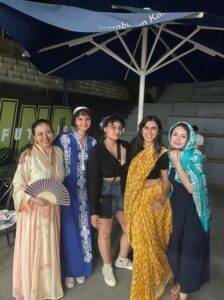
On the Summer University campus, the students also took part in various shared cultural activities, such as Turkish language classes and group meditation sessions.
Graduation ceremony and presentation of research projects
